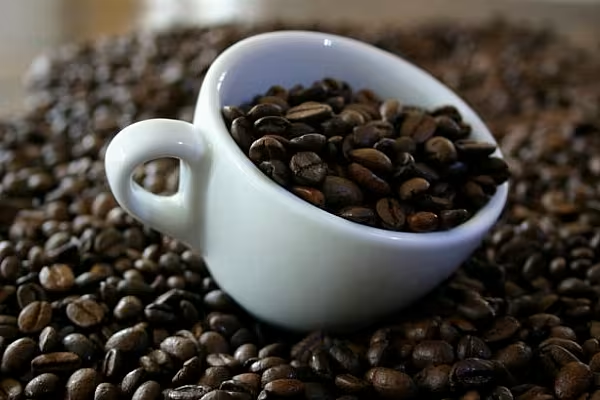Arabica coffee, the mild-tasting bean type favored by Starbucks Corp., surged to the highest since February 2015 after Brazil’s largest producer cut its export estimate for 2016 amid rising domestic consumption and the effects of drought.
The Cooxupe cooperative now sees coffee shipments totaling as many as 4 million bags this year, Executive Director Lucio Dias said Tuesday. That’s down from an April outlook of as many as 4.5 million bags amid tighter domestic supplies (a bag weighs 60 kilograms, or 132 pounds).
Arabica coffee for December delivery rose as much as 2.9 percent on ICE Futures U.S., and was at $1.623 a pound at 10:56 a.m. in New York. It’s headed for the sixth straight monthly gain, the longest such streak since 2005. Prices are drawing support from “continued concern" over longer-term supplies of arabica from Brazil and similar concerns over robusta beans, Johannesburg-based trader I. & M. Smith Ltd. said in a report.
The coffee market has already seen demand exceeding consumption in the two years ended Sept. 30, according to the International Coffee Organization in London. Coffee has posted the fifth-best return so far this year among the raw materials tracked by Bloomberg Commodity Index.
In Vietnam, the largest producer of robusta, output of that variety is projected to drop 20 percent, the Vietnam Coffee and Cocoa Association said Monday. In London, robusta for January delivery advanced reached $2,175, the highest since October 2014. The premium that arabica commands over its cheaper cousin jumped 5.3 percent to 63.02 cents, the highest level since Sept. 27.
In Brazil, the nation’s robusta crop has been devastated by severe drought, prompting coffee-bean roasters to look for more arabica than usual. On top of that, Brazilians are likely to consume 3.2 percent more coffee in 2016, well above the typical growth rate of about 1 percent, Nathan Herszkowicz, head of industry group ABIC, said by phone.
Cooxupe now expects to divert as many as 700,000 bags of coffee from the export market to the domestic market in 2016. "Export and internal prices are similar, but domestic sales yield a bigger net gain because of lower logistical costs," Dias said in an interview.
A customs strike is affecting the issuance of certificates for export, Nelson Carvalhaes, president of Brazil coffee exporters group CeCafe, said earlier this month.
News by Bloomberg, edited by ESM. To subscribe to ESM: The European Supermarket Magazine, click here.














